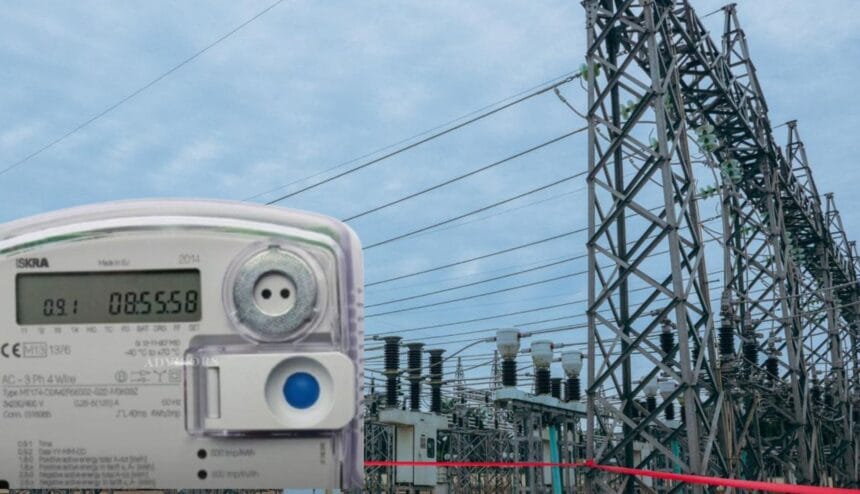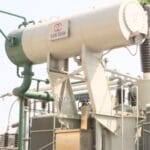… ending blanket electricity subsidy, with ₦5,000 monthly relief worth 25 kWh for low-income households
… activation of PCAF, full cost-reflective tariffs by Q1, 2025
Adetayo Adegbemle
Nigeria’s Electricity Supply Industry (NESI) is grappling with persistent financial instability, largely driven by an unsustainable subsidy regime and insufficient market payments to Generation Companies (GenCos).
As the sector teeters on the brink of a liquidity crisis, the Power Consumer Assistance Fund (PCAF) emerges as a transformative solution, offering a targeted and structured alternative to subsidies while addressing the diverse needs of electricity consumers.
The challenges in NESI have been mounting over time, particularly due to a frozen end-user tariff policy implemented in December 2022.
This policy created a significant gap between cost-reflective tariffs and the rates charged to consumers, leading to a massive subsidy burden of ₦262 billion monthly.
Consequently, only 9.5% of GenCos’ invoices were settled from market revenues, causing severe cash flow shortages that forced gas suppliers to curtail their supply, further disrupting electricity generation.
In April 2024, the Nigerian Electricity Regulatory Commission (NERC) introduced a temporary measure to unfreeze tariffs for Band A customers, those guaranteed 20 hours of electricity daily.
This intervention provided some relief, raising market payments to 49.5% and reducing the monthly subsidy burden to ₦153 billion.
Despite this progress, resistance to further tariff adjustments, particularly for lower consumer bands, coupled with the government’s reluctance to revise these rates, has stalled broader reforms.
By the end of 2024, market payments are projected to decline again to 39%, with subsidies rising to ₦200 billion—a scenario that underscores the urgency for sustainable solutions.
PCAF, established under the Electricity Act of 2023, presents a forward-looking approach to addressing these challenges.
Unlike traditional subsidies that indiscriminately benefit the entire sector, PCAF is designed to provide targeted financial support directly to electricity consumers.
At the same time, it allows Distribution Companies (DisCos) to implement cost-reflective tariffs, ensuring they can cover operational costs and meet financial obligations to GenCos.
This innovative framework not only alleviates the liquidity crisis but also promotes financial sustainability across the electricity value chain.
By focusing on transparent and equitable distribution, PCAF ensures that vulnerable consumers receive the necessary support while fostering a more resilient and efficient electricity supply system.
As the sector transitions to this model, the balance between affordability for consumers and financial viability for industry stakeholders will be pivotal in ensuring the long-term stability of Nigeria’s electricity supply industry.
The Power Consumer Assistance Fund (PCAF) introduces a novel mechanism to address Nigeria’s electricity challenges.
Financed through contributions from the government and eligible customers, with rates and durations determined by the Nigerian Electricity Regulatory Commission (NERC), the fund is designed to be transparent and equitable.
NERC will oversee its management, ensuring that benefits are distributed fairly across customer segments.
Initially, PCAF will provide universal support, reducing financial burdens on all consumers during periods of economic volatility.
However, as conditions stabilize, the fund will shift its focus to underprivileged customers, in alignment with Section 122(4) of the Electricity Act.
This targeted approach ensures that the most vulnerable groups receive the assistance they need, creating a safety net while transitioning to a more sustainable system.
The fund guarantees a minimum monthly subsidy of ₦5,000 per customer, equivalent to 25 kWh of electricity.
For low-income consumers using less than 25 kWh per month, the subsidy will fully cover their consumption costs, ensuring affordability and promoting efficient energy use.
One of PCAF’s most significant advantages is the transparency it offers.
By clearly communicating the amount of financial support provided to offset electricity bills, the fund fosters trust between consumers and the electricity sector.
This clarity also incentivizes responsible energy consumption, encouraging customers to optimize their usage.
For Distribution Companies (DisCos) and Generation Companies (GenCos), PCAF represents a lifeline to financial sustainability.
By allowing DisCos to implement cost-reflective tariffs, the fund ensures they can meet operational costs and honour financial obligations to GenCos.
This eliminates the persistent cash flow shortages that have long plagued NESI, stabilizing the supply chain and enabling more reliable power delivery.
Unlike blanket subsidies, PCAF prioritizes targeted support where it is needed most.
Low-income households, which typically consume minimal electricity, will enjoy full subsidies, ensuring they are not excluded from access to power.
This targeted financial support also paves the way for a fairer and more efficient electricity market, where resources are allocated to achieve maximum impact.
PCAF not only addresses the immediate liquidity challenges facing Nigeria’s electricity sector but also sets the foundation for a more resilient and equitable system.
Through transparency, targeted support, and financial sustainability, the fund is poised to transform the landscape of electricity distribution and consumption in Nigeria.
NERC aims to activate the Power Consumer Assistance Fund (PCAF) by the first quarter of 2025.
This transition is expected to be a pivotal phase for Nigeria’s electricity sector, demanding meticulous planning and execution to ensure its success.
Collaboration with stakeholders, including Distribution Companies (DisCos), consumer advocacy groups, and policymakers, will be essential to achieving seamless implementation.
Real-time monitoring systems and robust IT frameworks will be deployed to track service quality and compliance, ensuring that the objectives of the fund are met effectively.
These mechanisms will also enhance transparency and accountability, reinforcing trust in the sector’s new direction.
As tariffs are gradually adjusted to align with macroeconomic conditions, measures will be in place to ensure that consumers are not overburdened during the transition.
This careful approach aims to balance the need for financial sustainability within the electricity supply chain with the imperative of maintaining affordability for consumers.
The introduction of PCAF represents a transformative and sustainable path forward for Nigeria’s electricity sector.
By replacing indiscriminate subsidies with a system of targeted financial support, the fund addresses the critical liquidity challenges that have long plagued the sector while safeguarding the interests of vulnerable consumers.
As Nigeria transitions to this new model, a careful balance must be struck between ensuring electricity remains accessible to all and fostering a financially viable and thriving electricity market.
Adetayo Adegbemle is a public opinion commentator/analyst, researcher, and convener of PowerUpNigeria, an Electric Power Consumer Right Advocacy Group, based in Lagos. (Twitter: @gbemle, @PowerUpNg)




